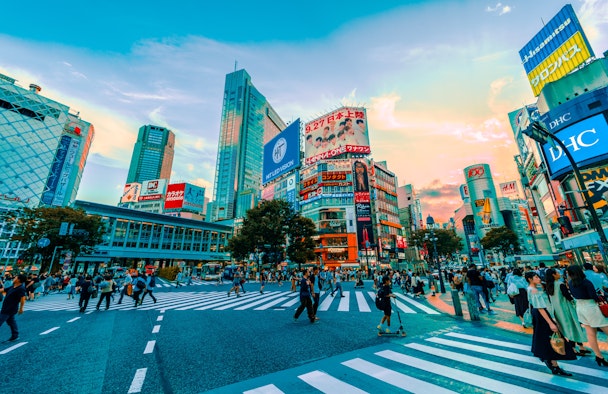A sporting chance: how brands can triumph in Tokyo
Rugby fans the world over were stunned when, on 19 September 2015, Japan’s team beat South-Africa at the Rugby World Cup in England. Until this point, Japan had one of the lowest ranking teams and as a consequence, the Japanese weren’t that bothered about the sport. But the shock win sparked excitement for the 2019 Rugby World Cup in Japan, which will likely build and reach fever pitch for the 2020 Tokyo Olympics. By providing a chance to tap into this engaged audience, both tournaments are important events on any marketing calendar.

Brands will always find ways of creating a buzz without paying extortionate sponsorship fees at events like these. Perhaps the most famous example of ambush marketing in sports is when Beats by Dre gave athletes a free pair of headphones at the 2012 London Olympics. While they couldn’t bring them into the venue, the sports stars were filmed wearing the products on their way to the competition.
Guerilla marketing will likely be harder in Tokyo, as regulators are strict about brands infringing on copyrights and trademarks. Plus, you’ll likely need permission to perform the promotional activity in public areas. But there should be plenty of opportunities for businesses that know how to get around the rules without breaking them. Brands just need to understand the limitations and engage with agencies that are willing to go the extra mile to come up with solutions rather than problems.
One of the most challenging but creatively exciting elements of advertising in Japan is the fact that it has one of the most unique cultures in the world with very specific habits and rules. For example, the Japanese are horrified when foreigners wear their toilet slippers outside of the bathroom where they belong. Similarly, many foreign visitors see no harm in placing their chopsticks in a bowl of rice. But this is something locals only do at funerals.
The Japanese don’t take kindly to people messing with their culture. When a famous Chinese blogger asked Jiro, a world-famous sushi-chef, to ‘fry’ her fish because she didn’t want it raw, he kicked her out of his restaurant.
With so many foreigners getting it wrong in Japan, it’s no surprise that brands do too. Taco Bell, for example, made the mistake of using translation software for its launch in the country. Its Cheesy Chips were rather unfortunately named Yasuppoi Chippusu on the menus, which means something that is low quality or cheap-looking. Meanwhile, the Crunchwrap Supreme was advertised as Saikousai Gyuuniku, or rather Supreme Court Beef.
It’s not impossible for brands to get it right though, and when they do, its because the message is crafted specifically for the Japanese consumer. What works in your home-country won’t necessarily work here. Often shy and reserved, the Japanese can be hesitant to interact with more participatory marketing campaigns. If you want to engage them in your promotional activities, you’ll need to make it as easy for them as possible and explain the mechanics of your campaign clearly.
But the Japanese will get excited about anything new and cutting-edge. Whether it’s the latest gadgets, trends or foods, they will willingly queue up to experience the next big thing. Technology is a great way to engage this audience. Mobile usage is extremely high in the country and during their long daily commutes, which typically take between one and one-and-a-half hours, the Japanese are glued to their smartphone screens.
Immersive technologies like AR and VR are still relatively under-explored in Japan, but the popularity of Pokemon Go suggests that they are starting to permeate everyday life. AR and VR could be useful tools for brands to get around sponsorship regulations. After all, no one can stop you from claiming your billboard in AR.
Events like the Rugby World Cup and Olympic Games provide a platform for the creative community to make outstanding work, whether working with the official sponsors or not. Succeeding in Japan demands creative excellence, bravery and cultural sensitivity. But for those up to the task, the opportunities are there for the taking.
Tomo Murakami is representative director, UltraSuperNew Tokyo.
